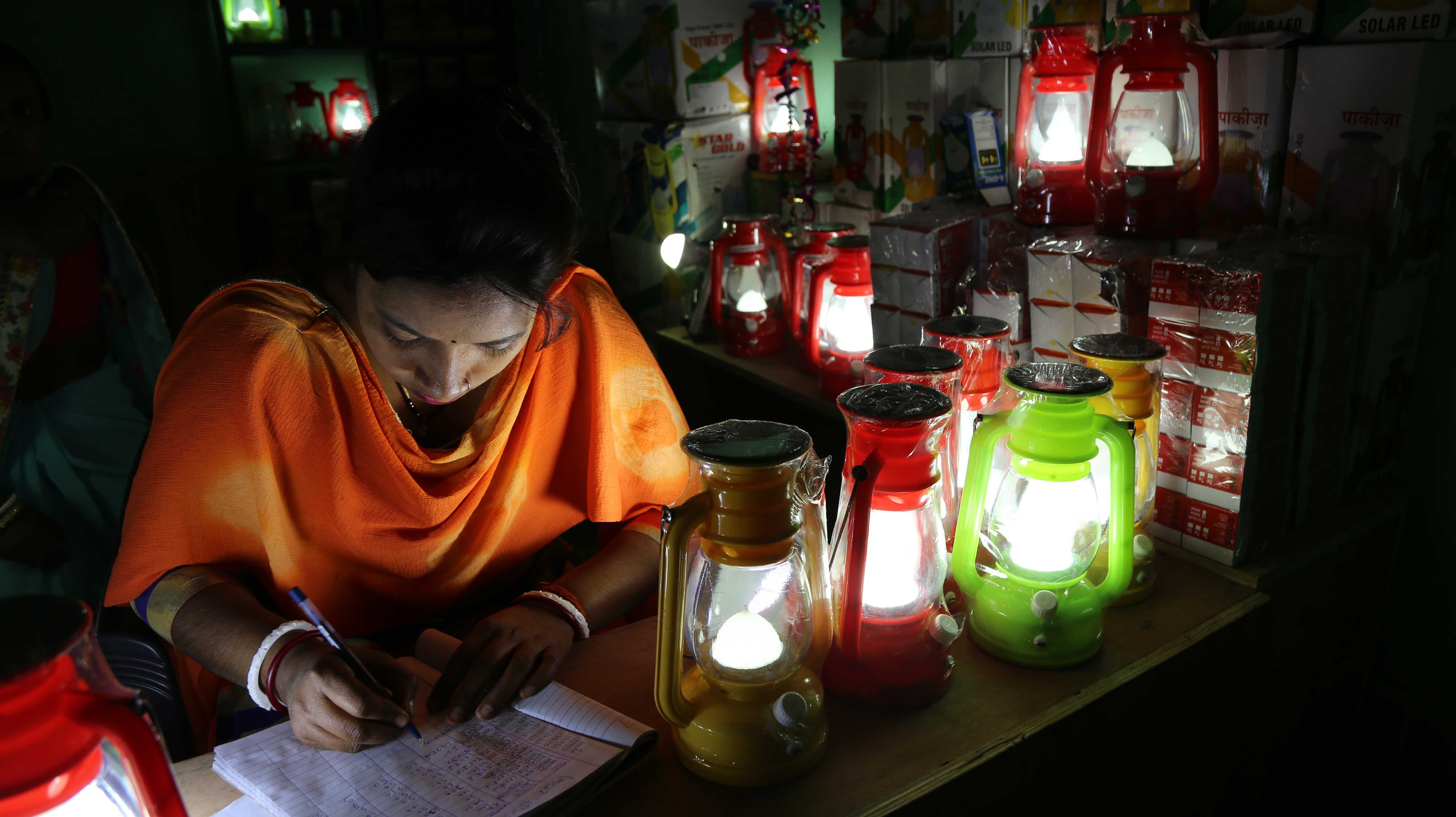
INSTITUTE FOR HUMAN RIGHTS & BUSINESS
2023-2025 STRATEGY
Table of Contents
- Global Context
- Vision and Outcomes
- Mission and Objectives
- Approaches
- Assumptions
- Core Principles
- Just Transitions
- Dignity in the Built Environment
- Responsible Commodities
- Sustainable Oceans
- Migration with Dignity
- Cross-Cutting Levers
- The Centre for Sport and Human Rights (CSHR)
- The Corporate Human Rights Benchmark (CHRB)
- The Myanmar Centre for Responsible Business (MCRB)
- Driving Migration with Dignity through Responsible Recruitment
- Centro Regional de Empresas y Empren dimientos Responsables (CREER)
- Board of Trustees
- International Advisory Council
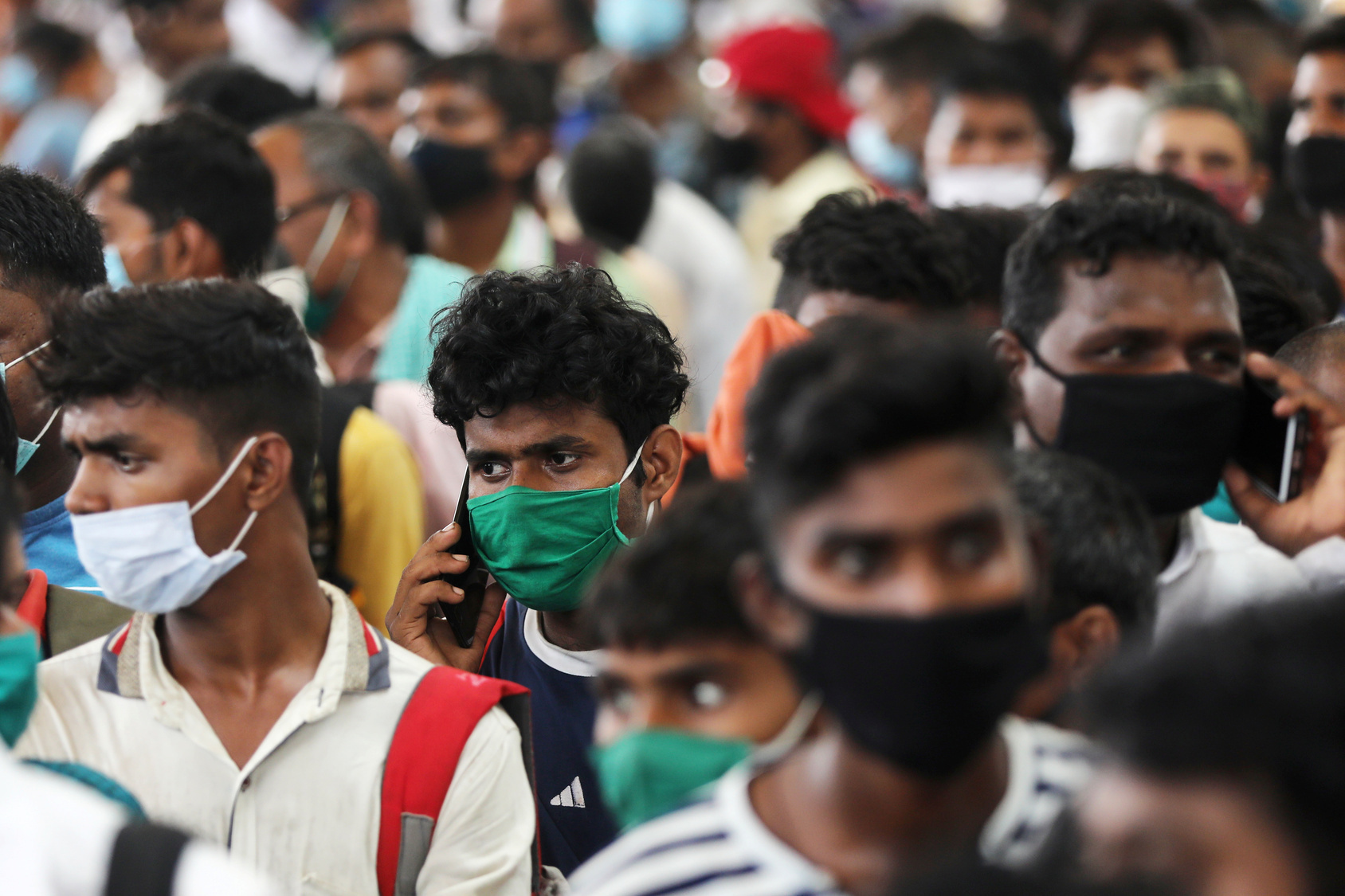
Migrants returning from their hometown of Uttar Pradesh wait to be tested for COVID-19.
- REUTERS/Francis Mascarenhas

A boy at the Lake Turkana wind power installations in Kenya. - Maurizio Di Pietro / Climate Visuals Countdown
2
“ I was pleased to take up the
role of founding Chair in 2009,
and continue my involvement as Patron, of an organisation that
plays a crucial role in shaping more responsible business practices around the world.
IHRB provides independent
human rights-based research and analysis that drives constructive engagement and collective action with business, government, and civil society across some of the most critical challenges of our age. ”
Mary Robinson
IHRB Patron
Chair of the Elders
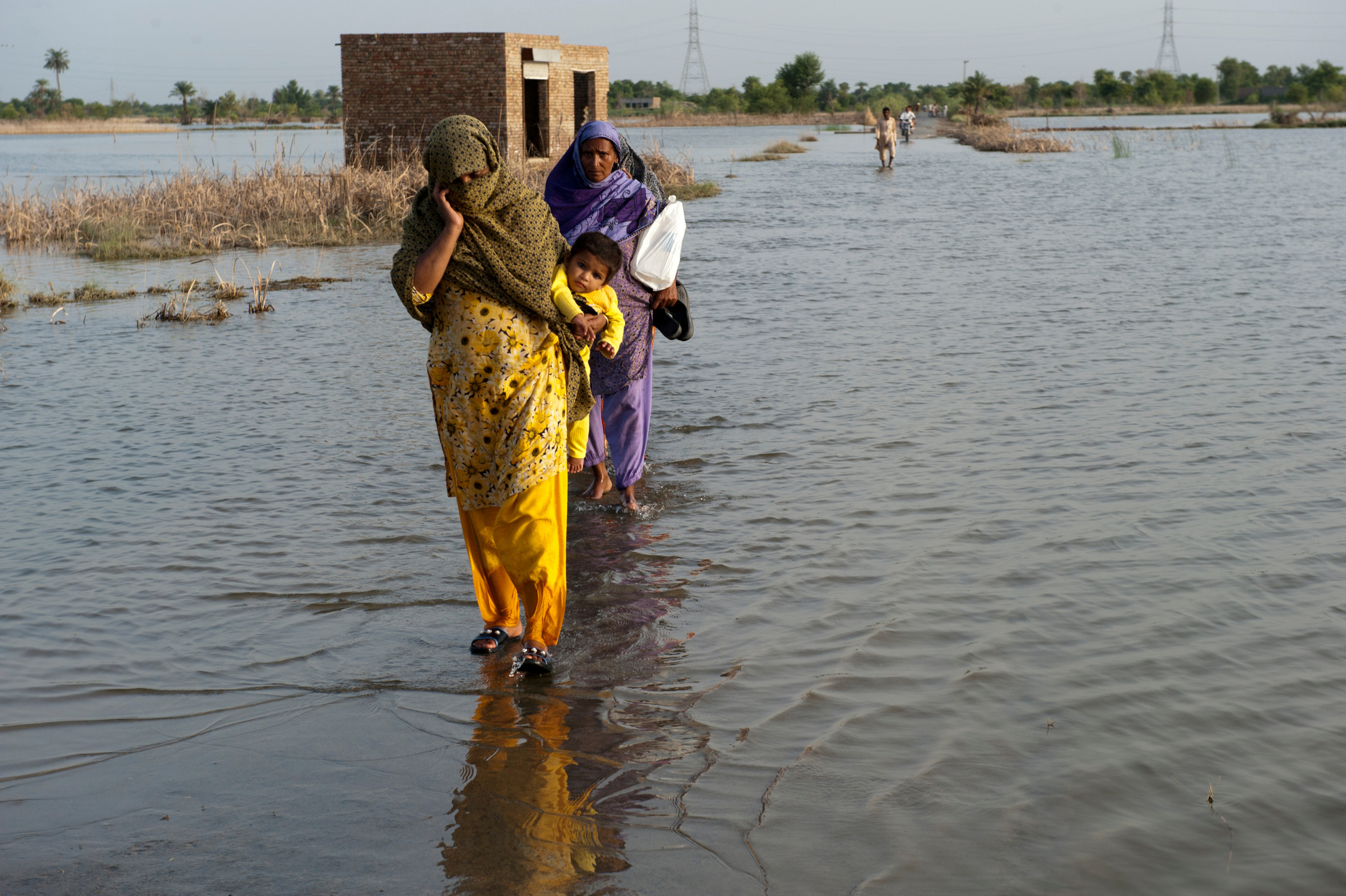
A family crosses the flooded streets of Pakistan.
- Asian Development Bank / Flickr
A family crosses the flooded streets of Pakistan.
- Asian Development Bank / Flickr
Scaling up Our Impact
FOREWORD BY MARGOT WALLSTRÖM
Our world faces multiple crises: from the growing climate emergency to an ongoing pandemic; from violent conflict and persistent inequalities within and between nations; to rising threats to democratic institutions and global governance.
A better, more sustainable future - one in which the inherent dignity and equal rights of all people are guaranteed - can’t be achieved through state actions alone, although holding governments to their obligations under international law remains central. Today’s global challenges will only be met when all influential actors, public and private alike, recognise and take the steps needed to align their actions at every level with international human rights, labour and environmental standards, and commit to working with others in seeking solutions to complex problems beyond national borders.
The Institute for Human Rights and Business (IHRB) was established over a decade ago to better understand and address the many connections and conflicts between business activities and efforts to realise human rights around the world. Today, IHRB is a trusted leader in advancing the responsible business agenda in multiple regions and across diverse industry sectors.
Margot Wallström
Chair of IHRB’s
International Advisory Council
Former Environment Commissioner and Vice- President of the European Commission; former Foreign Minister of Sweden
By undertaking cutting edge research and policy analysis, facilitating constructive multistakeholder dialogue, and developing innovative programmes that help shape state and business performance, IHRB’s work is more important than ever.
I am honoured to engage with the talented IHRB team, supported by our committed Trustees
and International Advisory Council, to advance IHRB’s ambitious work around the world. This Strategy sets out a vision for scaling up our impact and engaging in new areas over the coming years to 2025. That includes the critical aim of connecting business and human rights principles and approaches more directly with ongoing initiatives to address climate breakdown and achieve transitions to a regenerative economy rooted in human rights and social justice.
In the years ahead, IHRB will continue to base
all its activities on the international human
rights framework, in particular, the UN Guiding Principles on Business and Human Rights. We’ll strengthen our efforts to put the perspectives and voices of affected stakeholders at the centre of everything we do. And we’ll maintain our commitment to constructive dialogue and collective action in achieving results that matter in the lives of people.
We look forward to further opportunities for dialogue and cooperation focused on making human rights part of everyday business around the world.
Making Human Rights Part of
Everyday Business
Many of the challenges that humanity faces today relate to the global marketplace and the role of business within it. This Strategy is our way of recognising the forces at play, and where and how IHRB might add the most value for positive human rights outcomes.
Three prevailing issues in the global context steer our thinking in fundamental ways. Entrenched inequality continues to deepen. Capital itself is part of this dynamic, and particularly problematic when businesses are unaccountable for their actions or inactions.
Environmental disaster looms in terms of the climate crisis but also biodiversity loss, pollution, food security, and resilience. This at a time when the multilateral system is threatened in a way unseen since its creation in the aftermath of the Second World War.
If ever there was a time for innovative thinking, unusual alliances, new incentives, and forms of accountability,
it is now.
INTRODUCTION BY JOHN MORRISON AND JULIA BATHO
John Morrison
CEO, IHRB
Julia Batho
Deputy CEO, IHRB
IHRB’s 2023-2025 Strategy is informed by over a decade of experience since our founding in 2009, and is shaped by the knowledge and expertise of our global network of leaders, practitioners, and activists across business, finance, government, and civil society. It is a living document, capturing IHRB’s current thinking and approaches to making human rights part of everyday business around the world, but also expected to evolve over time.
This Strategy is also a directional document. It provides an overview of:
- Our view of the global context in which our vision and long-term outcomes must be rooted
- Our mission-driven objectives of shaping policy, advancing practice, and shaping accountability
- Our day-to-day approaches to delivering impact
More detailed strategies for each of our focus areas have also been developed which both inform and are informed by this strategic framework.
We would like to thank Declarative Labs for their design support in bringing this document to life, our global team who drives our daily work, our Trustees and International Advisory Council for their ongoing strategic guidance, our funders for their enabling support, and our broad network of partners and allies working alongside us to make human rights part of everyday business.
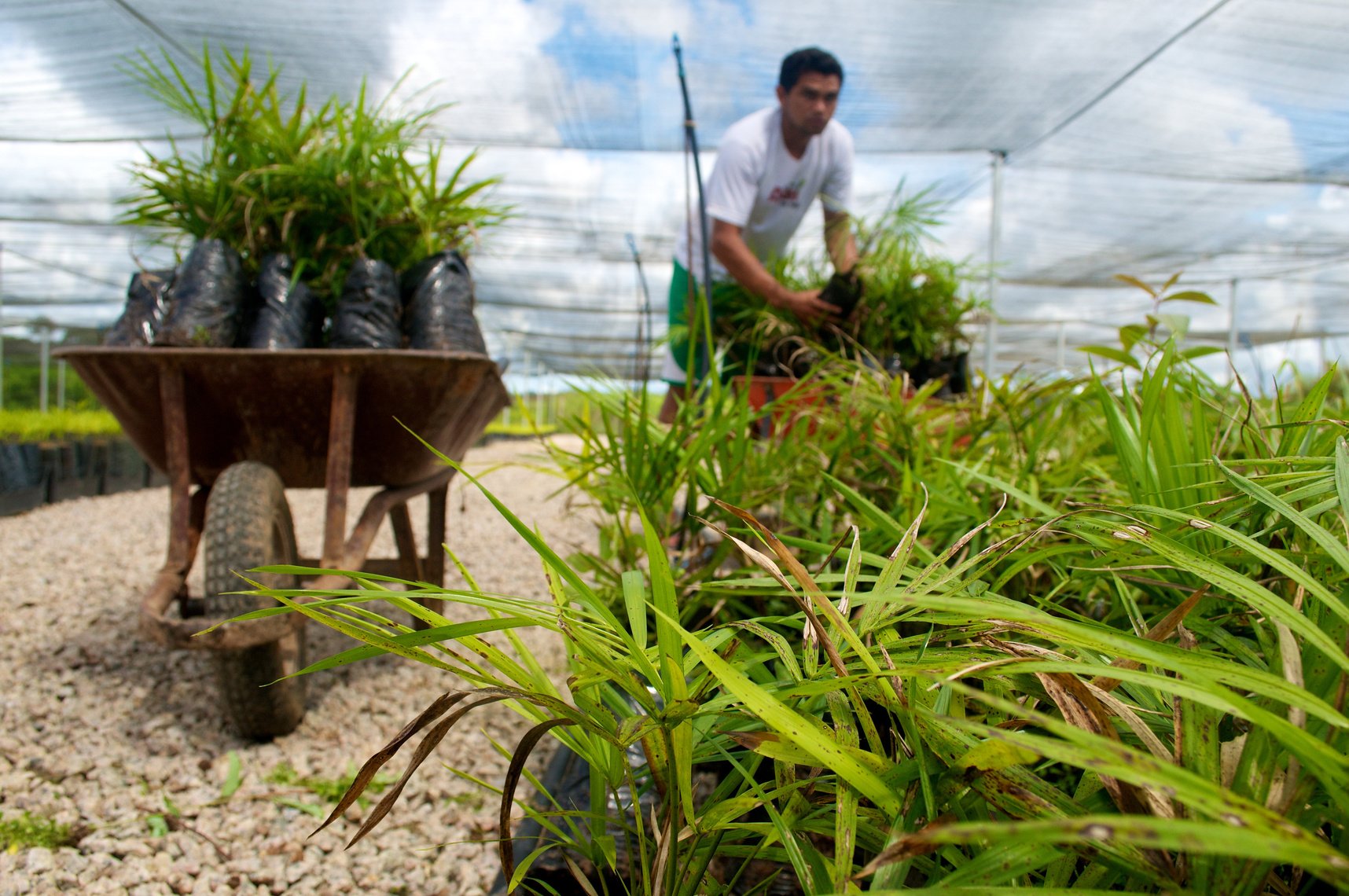
Acai nursery in Acre, Brazil - a state government initiative to assist reforestation. - Kate Evans / CIFOR
IHRB’s Strategic Framework
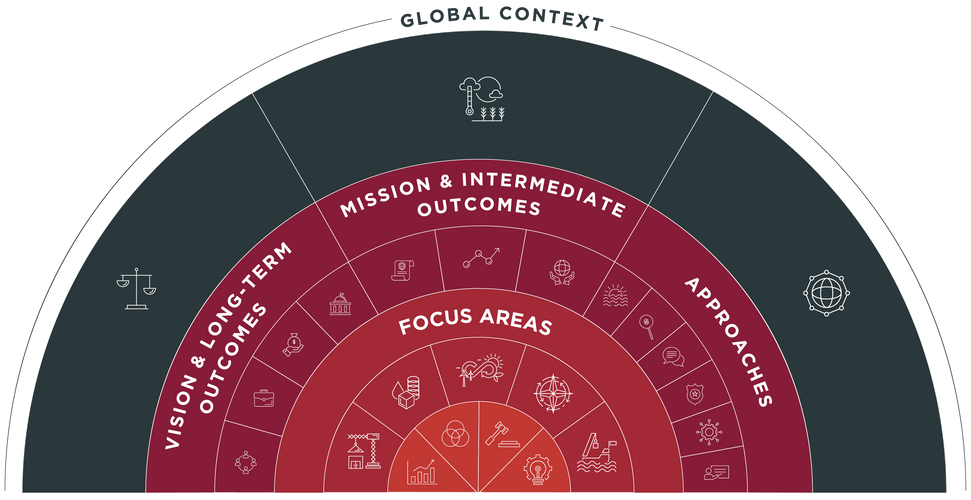
VISION & OUTCOMES
MISSION & OBJECTIVES
APPROACHES
A JUST, REGENERATIVE GLOBAL ECONOMY WHERE:
MAKING RESPECT FOR PEOPLE AND PLANET
PART OF EVERYDAY BUSINESS BY
WORKING TOWARD OUR INTENDED
OUTCOMES AND OBJECTIVES THROUGH
- Workers and communities are free and able to use their voices effectively to ensure their rights are respected.
- Businesses demonstrate respect for the rights of workers and communities, and the natural systems they depend on, in their purpose, operations, relationships, and value creation.
- Financial actors use their leverage to increase the scale and performance of their partners’ commitments to human rights and the environment.
- Governments actively implement a smart mix of measures that drive long-term, rights- respecting, and planet-aligned business practice.
- Shaping Policy: Local, regional, and international policies and legal systems reflect the learnings and recommendations from IHRB’s and partners’ research, engagement, and experience.
- Advancing Practice: The actions of the businesses and governments IHRB and our partners engage reflect the rights-based approaches we advocate and work to strengthen over time.
- Strengthening Accountability: IHRB’s and partners’ engagement with businesses and governments leads to greater responsibility for and action to address known human rights harms.
- Scanning the horizon to identify gaps and emerging issues
- Developing evidence to advance global norms and standards
- Driving dialogue and breaking down silos
- Advocating for better laws and stronger forms of accountability
- Dynamically communicating across diverse mediums
- Teaching and training the next generation of leaders
GLOBAL CONTEXT

Crop burning to clear land in Punjab.
- Ishan Tankha / Climate Visuals Countdown
Humanity currently faces multiple crises undermining efforts to advance the realisation of human rights. These include deepening and entrenched inequality, environmental disaster, and multilateral breakdown. IHRB is committed to playing a constructive role in addressing these interconnected crises by working with partners to shape a more just and regenerative global economy in which the human rights of all people, and the natural systems they depend on, are respected, protected, and fulfilled.
ENTRENCHED INEQUALITY
ENVIRONMENTAL DISASTER
MULTILATERAL BREAKDOWN
Vast gaps in power, equity, and access persist between the world’s richest and poorest. Governments and businesses are not facing up to the consequences of policies and actions that contribute to widespread poverty and social instability. A more hopeful future requires wholesale economic transformations, an end to narrow national and vested interests, and strengthened commitments to achieving the 2030 development agenda in ways that are consistent with international human rights obligations.
The planet’s ecological systems are experiencing wide-scale and in some cases permanent devastation. Business and government responses to the climate crisis are so far inadequate, uncoordinated, and without sufficient focus
on the human rights implications of ineffective climate action, including in the steps needed to reach net-zero emissions. The imperative of achieving just transitions must guide all policies and business decisions taken in each local context and globally.
The reemergence of geopolitics, populism, and protectionism, combined with rapid changes in technology, have called into question core elements of the multilateral system and institutions established to foster international cooperation. Even before the COVID-19 pandemic, issues such as trade, global supply chains, and corporate governance had become more divisive. The challenge now is to reform and reinvent the governance arrangements needed to make global action effective, inclusive, and accountable, including with respect to the responsibilities of business.
VISION AND OUTCOMES
Since our establishment in 2009, IHRB has worked to advance respect for human rights across the world of business based on international standards, most notably the United Nations Guiding Principles on Business and Human Rights. This Strategy sets our direction for the coming years and is inspired by the ongoing relevance of the business and human rights agenda to addressing
global challenges, including the critical importance of the industrial and economic transitions needed to achieve a regenerative global economy rooted in human rights and social justice.
By this we mean a future of zero or low emissions, climate resilience and restoration, poverty elimination
and vibrant communities guaranteed social protection and inclusion; economic, racial, and gender equity; thriving workers whose rights are respected; and ultimately, more balanced power dynamics between those in business enterprises and those affected by them.
IHRB’S VISION IS A JUST, REGENERATIVE GLOBAL ECONOMY WHERE:
Workers and Communities
are free and able
to use their voices effectively to ensure their rights are respected.
Financial actors
use their leverage to increase
the scale and performance of their partners’ commitments to human rights and the environment.
Businesses
demonstrate respect for the rights of workers and communities, and the natural systems they depend on, in their purpose, operations, relationships, and value creation.
Governments
actively implement a smart mix of measures that drive, long-term, rights- respecting, and planet-aligned business practice.
MISSION AND OBJECTIVES
IHRB’S MISSION IS TO MAKE HUMAN RIGHTS PART OF EVERYDAY BUSINESS BY:
Shaping Policy
Local, regional,
and international policies and legal systems reflect
the learnings and recommendations from IHRB’s and partners’ research, engagement, and experience.
H
S
A
P
I
N
G
P
O
L
N
G
T
H
E
N
I
N
G
A
C
C
O
U
N
T
A
B
I
C
Y
A
D
V
A
N
C
I
N
G
P
E
R
C
A
I
C
T
S
T
R
E
I
L
I
T
Y
Advancing Practice
The actions of the businesses and governments IHRB and our partners engage reflect
the rights-based approaches we advocate and work to strengthen over time.
Strengthening Accountability
IHRB’s and partners’ engagement with businesses and governments leads to greater responsibility for and action to address known human rights harms.

A worker in a technology factory in China.
APPROACHES
IHRB deploys a mix of human rights-based
research, engagement, and collaborative action
with businesses, governments, financial actors, and civil society representatives. We have developed a track record of independent analysis as well as constructive interventions and collaborative engagement with all constituencies, earning a reputation as a trusted organisation committed to working with all actors to identify practical solutions and approaches needed to effect positive change.
A worker at a brick factory in West Bengal.
- Sudip Maiti / Climate Visuals Countdown
THESE APPROACHES INCLUDE:
Scanning the horizon to identify
gaps and emerging issues
We identify strategic opportunities
to raise awareness and engagement
on emerging human rights issues and
the roles of diverse business sectors, highlighting the importance of human rights standards and interventions
needed to protect workers, communities, and other affected stakeholders.
Driving dialogue and
breaking down silos
We catalyse multi-stakeholder engagement and collaboration to
drive concrete outcomes, fostering constructive joint actions across value chains, lifecycles, and ecosystems, including by incubating new initiatives dedicated to addressing key global challenges.
Dynamically communicating
across diverse mediums
We communicate across diverse mediums, innovating our approaches to narratives and storytelling wherever possible to continually move business and human rights and responsible climate action to the mainstream.
Developing evidence to advance
global norms and standards
We undertake rigorous research, develop practical recommendations, and test potential solutions that support locally- relevant and rights-based approaches to business while also drawing out scalable global lessons for strengthening norms and standards on key sectors and issues.
Advocating for better laws and stronger forms of accountability
We act as a critical friend to policymakers and practitioners in developing more effective legal, regulatory, and enforcement measures that drive responsible business performance and stronger forms of accountability for all.
Teaching and training the
next generation of leaders
We create and deepen graduate-level business and policy programming
on the importance of human rights and responsible leadership, including guidance on how to tackle real-world dilemmas and undertake effective corporate human rights due diligence.

Fishermen working together in Kolkata.
- Shibasish Saha / Climate Visuals
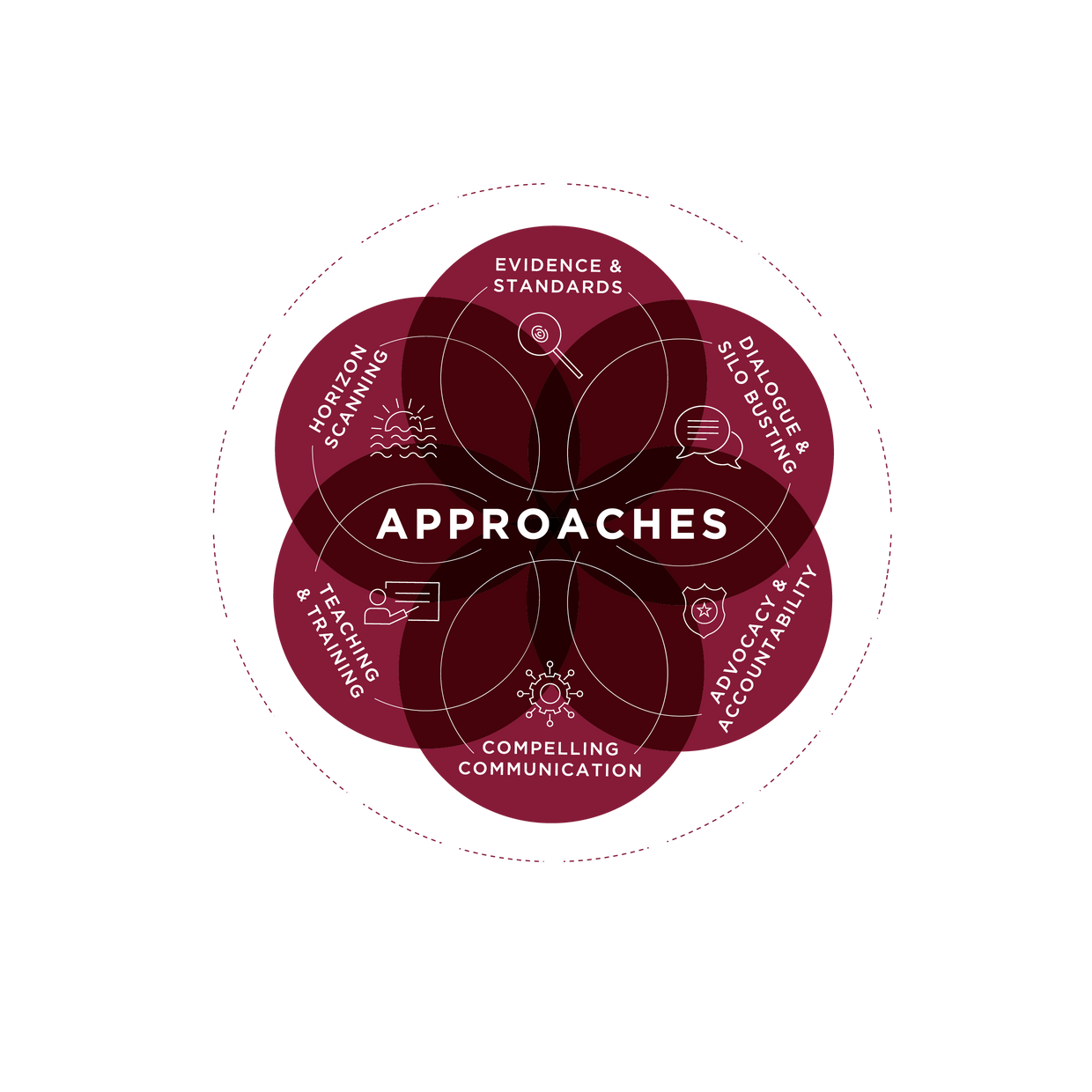

Man welding a large reinforced steel tube in the Philippines.
- Nonie Reyes / World Bank Photo Collection
IHRB is dedicated to achieving its vision and mission over time, while accepting that:
- Systems are complex, multifaceted, and constantly shifting, and require legal, economic, and societal interventions to produce positive outcomes.
- The reforms needed are global, but the means of achieving them are often local and context-specific.
- Transformations in policy and practice are not linear and require approaches that evaluate effectiveness and continually improve.
- Change cannot be achieved by any one actor or group acting alone but instead must be driven through shared responsibility and collective action.
- Trust building across different stakeholder groups is a continuous process that must be rooted in transparency.
- The leverage needed to generate positive behaviour change comes in many forms and depends on the context and stakeholders involved.
ASSUMPTIONS
CORE PRINCIPLES
In all our engagements with representatives
of businesses, governments, finance, and civil society, IHRB leads with core principles of being:
Human rights-based
The international human rights framework is the foundation on which all our work is built.
Independent
Working at the intersection of business, finance, government, and civil society, we are committed to maintaining trust and impartiality.
Systems focused
We focus our activities on addressing power imbalances and root-cause challenges within
the systems, structures, and relationships spanning sectors and economies.
Evidence-based
In everything we do, we seek to provide independent research and analysis and demonstrate successful practices grounded in local realities.
Innovative
We continually test new approaches, ways of thinking, and means of communicating to break down barriers and make meaningful progress toward our desired outcomes.
Collaborative
We seek always to be collaborative in our activities and never duplicative of valuable work undertaken by others.
Focus Areas 2023-2025
IHRB addresses some of the most important and emerging human rights issues facing business. For the period 2023-2025, our core focus areas include: just transitions, dignity in the built environment, responsible commodities, migration with dignity, and sustainable oceans.
The human rights risks and opportunities within these areas are often interlinked. We seek to ensure our teams are as cross-functional and integrated as possible, while offering specific expertise within each area where our approaches can add most value in a given sector or context.
Just Transitions
Advancing rights-based approaches to key sectoral net-zero transformations, informed through place-based research and informing norms and standards development for greater global coherence, comparability, and accountability across the growing array of just transitions claims and commitments.
Dignity in the Built Environment
Innovating rights-based approaches at the project-level of the built environment to demonstrate social and economic value, while targeting broader systems change and building industry standards through government and investor policy reform.
Responsible Commodities
Catalysing actors throughout the commodities value chain – from extraction and trading companies to manufacturers, refiners, transporters and end users – to address adverse human rights impacts across global markets.
Migration with Dignity
Leveraging responsible business to protect, respect, and fulfil the rights of migrant workers in all industry sectors and locations, ensuring migrant workers everywhere are treated with dignity.
Sustainable Oceans
Equipping actors across the ocean-based industries to meet their human rights responsibilities, through outcome-focused dialogue and ecosystem building that centres the voices of the indigenous groups, communities, and workers at risk.
JUST TRANSITIONS
To avoid the most catastrophic effects of the climate crisis, every industry and sector must urgently transition out of high-carbon operations and into low- or net-zero carbon systems. This entails enormous changes at nearly every level
of the global economy. As this transformative process picks up pace, protecting, respecting, and fulfilling the human rights of workers, communities, indigenous groups, and consumers must be central if we are to achieve transitions rooted in justice and equity. The transition out of high carbon activities entails significant challenges for ensuring no one is left behind. The transition into the green economy – with its mineral-heavy supply chains and land-hungry infrastructure – also risks being as damaging in human rights terms as historic approaches. Quality-control of transition strategies must be assured as governments, companies, trade unions, and NGOs are increasingly making their own claims about what is “just” in specific contexts and sectors. There is significant danger of hollow claims being made of people- and planet-respecting industrial transitions, but also cooption of the agenda to delay climate action as well as irresponsible abandonment of hard-to-remediate assets.
IHRB actively engages with policymakers, including through our accreditation to the UNFCCC, UN ECOSOC consultative status, as well as diverse partners across the climate action ecosystem to advance just transitions in key
sectors and contexts.
DIGNITY IN BUILT ENVIRONMENTS
Global building stocks, a major contributor to global carbon emissions, are projected to double by 2060. By then, 70% of the world’s population will be city-based, a large proportion being driven by climate migration. Technological innovation in cities – such as in the increasing number of “smart cities” relying on digital technology for a range of functions – also raises new human rights risks, via access and surveillance implications, amongst others. Put simply, the built environment is a major social-environmental intersection, requiring an integrated approach to preventing human rights impacts while achieving net-zero and circular imperatives.
IHRB has built a strong foundation of rights-based research, ecosystem building, and policy advocacy across the full built environment lifecycle – from land acquisition and planning, financing and design, through to construction, use, and demolition/redevelopment. A major objective is to break down silos that exist amongst key decision makers involved at each stage, while also better integrating the voice and agency of those affected by decisions about what is built and how. In the coming years, this approach will expand globally, with two mutually reinforcing tracks: innovating
at the project level, through a series of long-term partnerships on specific building projects, to integrate a rights-based approach, demonstrate social and economic value, and share lessons learned as public goods, and; targeting broader systems change through recommendations for policy reform by governments and investors in order to raise industry standards.
RESPONSIBLE COMMODITIES
Global net-zero objectives will require unprecedented industrial and technological transformation in all countries, and critical to those transformations will be the sourcing and supply of key commodities essential to new energy technology and systems. Demand for these commodities – copper, cobalt, lithium, nickel, amongst others – is expanding at exponential rates. They are required in huge quantities for everything from electric vehicles to solar panels to wind turbines. This comes at a time when both governments and businesses are looking to “securitise” supply of essential commodities, with pressure for greater traceability and the potential bifurcation of global trade. Such exponential demand will create significant risks, for communities, workers, and the environment, as companies race towards smaller supplies in harder to reach and more politically and ecologically sensitive locations.
IHRB is building on on our foundational human rights guidance for the commodity trading sector, to engage with all actors involved in the commodities most essential to delivering the global transition to a net-zero economy. This includes development of recommendations for action with actors across the commodity value chain – from commodity extraction and trading companies to manufacturers, refiners, transporters and end users. The ultimate aim is to ensure that at every step in the commodities value chain, human rights due diligence becomes a central component for policy and expected performance.

Worker on the assembly line of an electric vehicle factory.
- Abhishek Chinnappa / Climate Visuals Countdown
SUSTAINABLE OCEANS
MIGRATION WITH DIGNITY
Industrial activities in the world’s oceans can have significant economic and societal benefits. But they can also have adverse impacts on workers, local communities, and indigenous peoples. Shipping, aquaculture, offshore wind, deep seabed mining, and industrial fishing can result in displacement from traditional fishing and harvesting areas, and too often is marked by disregard of seafarers’ rights and disruptions that undermine long-standing cultural practices. Pollution from such activities impacts on food and individual and community health. To date, these kinds of risks to people have not been taken into consideration by business and government in the same way that environmental risks have; there is a gap in the ocean industry’s understanding and action on the inextricable links between the environment and human rights.
IHRB and partners address a range of issues linked to the world's oceans, including seafarers’ rights, offshore wind and coastal community impacts; indigenous peoples and the oceans; ocean “grabs” and risks to human rights defenders; ocean-based tourism; financial actors across the ocean value chain; and fishing and aquaculture. Cutting across all these activities is a particular focus on ensuring developing countries and indigenous peoples are “at the table” as long-lasting decisions are increasingly being made about how the ocean is used by industry and economies.
In our global economy, little is produced or done without the involvement of a migrant worker. Yet the fundamental rights of migrant workers continue to be violated around the world. Preventing modern slavery, forced labour, and human trafficking are increasingly issues on corporate agendas, but more is still needed to address negative perceptions of and discrimination against migrant workers and to address specific challenges such as the ongoing practice of migrant workers being forced to pay recruitment fees, which can lead to many other adverse impacts throughout the labour migration lifecycle.
IHRB steers the Leadership Group for Responsible Recruitment to harness the collective leverage of global brands and expert organisations to challenge exploitative recruitment models and promote practices based on the Employer Pays Principle, which affirms that no worker should pay for a job - the costs of recruitment should be borne not by the worker but by the employer. This work includes creating demand for responsible recruitment by companies sourcing workers; increasing the supply of responsible recruitment agencies; improving protection for workers and law abiding business through effective government legislation and enforcement activities and; developing research and advocacy around the negative impacts of worker recruitment fees on development outcomes.
Our work ultimately aims to elevate the concerns of migrant workers, and highlight their vital contribution to the global economy – pushing back on negative portrayals of migrant workers, which undermines efforts to strengthen worker voice within economic decision-making.

Apprentice in the Sheet Metal, Air, Rail & Transport Workers union in the USA.
- Justin Merriman / EE Image Database
CROSS-CUTTING LEVERS
Across our core focus areas outlined above, IHRB works to understand and utilise a number of cross-cutting levers that are key enablers (or disablers) of progress on human rights.
Finance
Working with investors, banks, insurers, and other financial actors to ensure capital is allocated toward rights-respecting and planet-aligned economic activity.
Intersectionality
Working with business, finance, government, and civil society actors across sectors to take more holistic approaches to power dynamics and their implications for identity-based discrimination.
Law
Working to drive greater and more effective hard- and soft- law mechanisms on responsible business within national, regional, and international legal systems.
Technology
Working with ICT companies and other key actors to ensure technological advance and connectivity is delivered while respecting human rights.

Fostering the Next Generation of Leaders
IHRB is committed to fostering the next generation of responsible leadership through its teaching and training work for students, business practitioners, and civil society leaders. We create and deepen graduate-level business and policy programming on the importance of human rights and responsible corporate leadership, including guidance on how to tackle real world dilemmas, and undertake effective corporate human rights due diligence. IHRB’s esteemed faculty is composed of IHRB staff, Research Fellows, International Advisory Council, as well as other global experts from business, academia, and civil society.
Our annual Masters course in partnership with Rafto Foundation and the University of Bergen has become world renown and a go-to source of foundational business and human rights knowledge for new professionals and those more established in their career but newer to the human rights discourse.
IHRB also works with Rafto to deliver annual business and human rights skills seminars for several leading business schools in the CEMS Global Alliance, such as the London School of Economics and Norwegian School of Economics, for its Masters in International Management.
IHRB also occasionally provides bespoke training for businesses, trade associations, embassies, academic institutions, government departments, and not-for-profit entities. Training covers industry-sector, country-specific, and thematic human rights dilemmas and challenges tailored to support a range of functions – legal and compliance, supply chains and procurement, corporate communications, human resources, corporate responsibility, sustainability. IHRB has also designed training specifically for non- governmental and civil society organisations to help them navigate the complicated process of engaging with the myriad different complex layers of multinational corporate entities, including corporate supply chains.
17
A solar engineer in the solar powered village of Tinginap. - Abbie Trayler-Smith / Climate Visuals
Examples of IHRB in Action
Since its founding in 2009, IHRB has pioneered a number of initiatives that showcase our vision and mission in geographic, thematic, and sector- specific contexts.
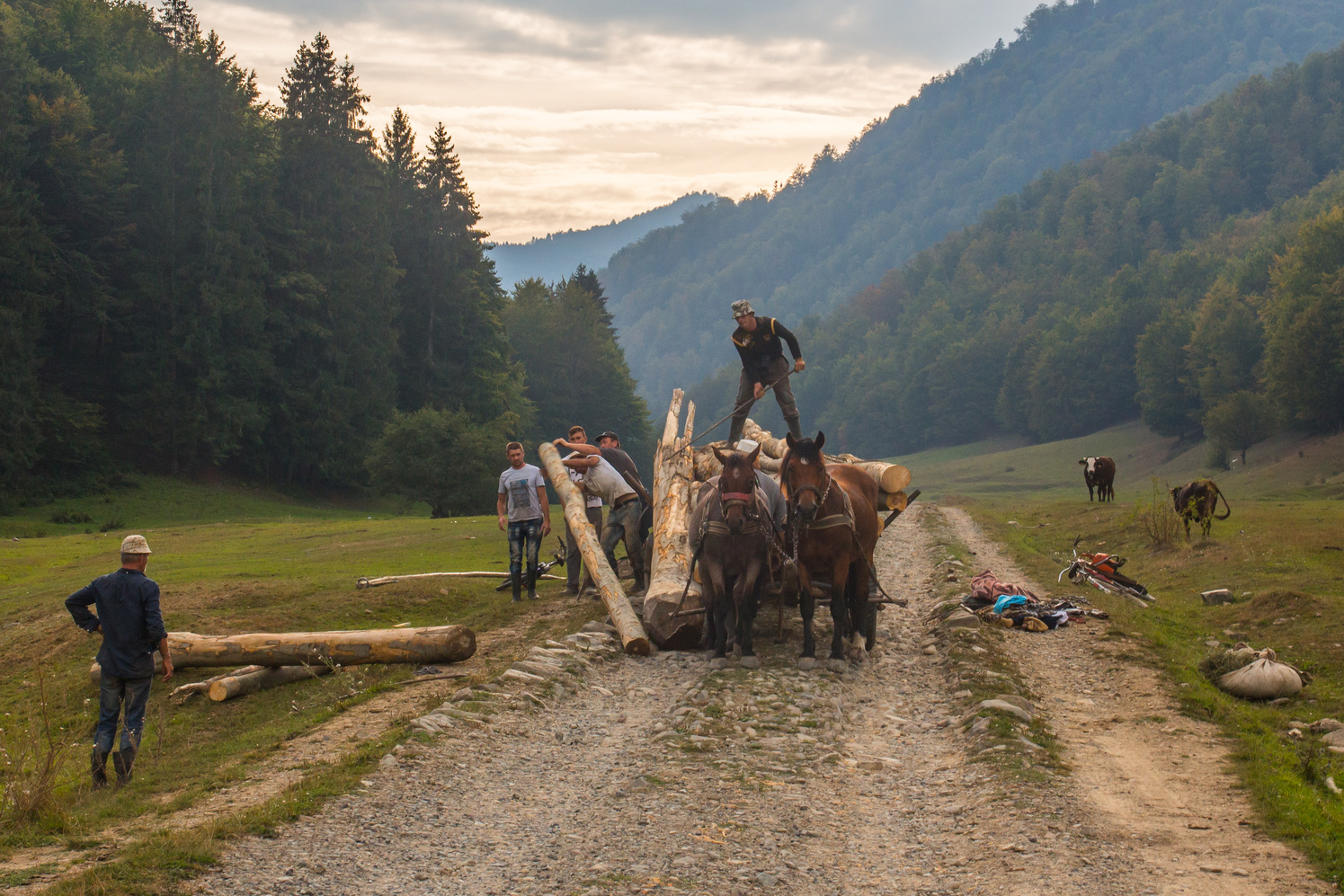
Traditional forest management without heavy machinery and intensive agriculture in Romania.
- Ondrej Kameniar / Climate Visuals Countdown
The Centre for Sport and Human Rights (CSHR)
The CSHR was established by IHRB and partners in 2018 as an independent Swiss-based organisation dedicated to advancing a world of sport that fully respects and promotes human rights by generating awareness, building capacity, and delivering impact. The Centre pursues its mission by upholding and promoting the Sporting Chance Principles, which were developed by IHRB and a multistakeholder coalition of governments, sports organisations, sponsors, broadcasters, trade unions, and NGOs to develop collective action approaches to responsible sport.
“ The Centre for Sport and Human Rights and the mission it pursues are the tangible result of a vision that IHRB was key in translating into collective action. As the host of dozens of international sports federations, the government of Switzerland is happy to work with IHRB, the Centre, and all partners to align the world of sport and human rights. ”
Rémy Friedmann
Senior Advisor, Business and Human Rights Swiss Federal Department of Foreign Affairs
The Corporate Human Rights Benchmark (CHRB)
The CHRB was established by IHRB and partners in 2015 to advance the human rights performance of companies through measurable indicators assessed against publicly-available information. The approach has broken the model of disparate private benchmarks sitting behind paywalls with opaque methodologies. The CHRB, now part of the World Benchmarking Alliance (WBA), ranks 330 of the world’s largest companies directly. The initiative has driven greater transparency amongst leading companies and has helped mainstream human rights due diligence within the growing responsible investment movement.
“ The Corporate Human Rights Benchmark has contributed significantly to the advancement of how corporate policies, practices, and performance on human rights are measured and understood. The CHRB would not exist without the leadership, expertise, and good offices of IHRB. ”
Steve Waygood
Chief Responsible Investment Officer Aviva Investors
Centro Regional de Empresas y Emprendimientos Responsables (CREER)
CREER, based in Colombia, is a regional hub and centre of south-south learning, knowledge, and exchange, using its affiliation with IHRB to develop strategic partnerships locally and share lessons internationally. CREER engages with governments, business, trade unions and wider civil society in Latin America to understand their perspectives and build them into the multi- stakeholder approach it takes to strengthening government and company efforts to protect, promote, and respect human rights.
“ Shaping just transitions, enhancing business engagement in protecting human rights defenders, and advancing dignity in built environments are just a few examples of where CREER and IHRB strengths and roles combine with impact to link local research and engagement in Colombia and the wider region to the advancement of norms and standards globally. ”
Luis Fernando De Angulo Executive Director CREER
Driving Migration with Dignity Through the Advancement of Responsible Recruitment
The Dhaka Principles for Migration with Dignity were developed in 2012 with the aim of making respect for migrant worker rights a top priority in supply chain due diligence. They are now recognised by the UN, civil society, and business as key framework for preventing migrant worker abuse and forced labour. Since 2016, IHRB has focused increasingly on the root cause of recruitment practices and advancing uptake of the Employer Pays Principle. The Leadership Group for Responsible Recruitment furthers this by driving the collective action of international brands together with the ILO, IOM, civil society organisations, and migrant worker networks.
“ The Employer Pays Principle is a simple but powerful concept developed by IHRB with major impact for prevention of exploitation in recruitment, improving lives for millions of migrant workers and their families across the world. ”
Kevin Hyland
Former UK Anti-Slavery Commissioner
The Myanmar Centre for Responsible Business (MCRB)
Established in 2012, MCRB is a unique national approach to advancing the business and human rights agenda. MCRB has strengthened international governmental, business, and civil society leverage on issues relating to workers and communities across Myanmar. The 2021 military coup has resulted in fundamental challenges for the country, but MCRB continues to lead work on encouraging responsible approaches of businesses as they make difficult decisions on how or whether to continue their operations or leave the country due to the ongoing conflict.
“ The coup in Myanmar put heightened human rights due diligence on the top
of investors’ agenda. IHRB’s global work on areas such as migrant worker rights, just transitions, and evolving mandatory due diligence regimes means we can
alert stakeholders in Myanmar to what these mean for them while also reflecting the realities in Myanmar back into the development of international norms. ”
Vicky Bowman
Director
Myanmar Centre for Responsible Business
Monitoring and Evaluation
IHRB is committed to continual learning and improvement, including in how we measure
and understand the extent to which our work
is leading to the outcomes we intend. We are working to further develop our systems for tracking and reflecting on our impacts and
refining our approaches.
Enhancing our monitoring and evaluation
systems will only strengthen our strategic framework for delivering on our mission and
vision of a more just, regenerative global economy. We will use this to continually assess and adjust our strategic priorities.
We will refine and where needed develop indicators that enable learning from the implementation of our 2023- 2025 Strategy, focused on activities that deliver the most meaningful impacts and outcomes.
We are committed to continually improving processes to collect, understand, share, and manage data that underpins this approach.
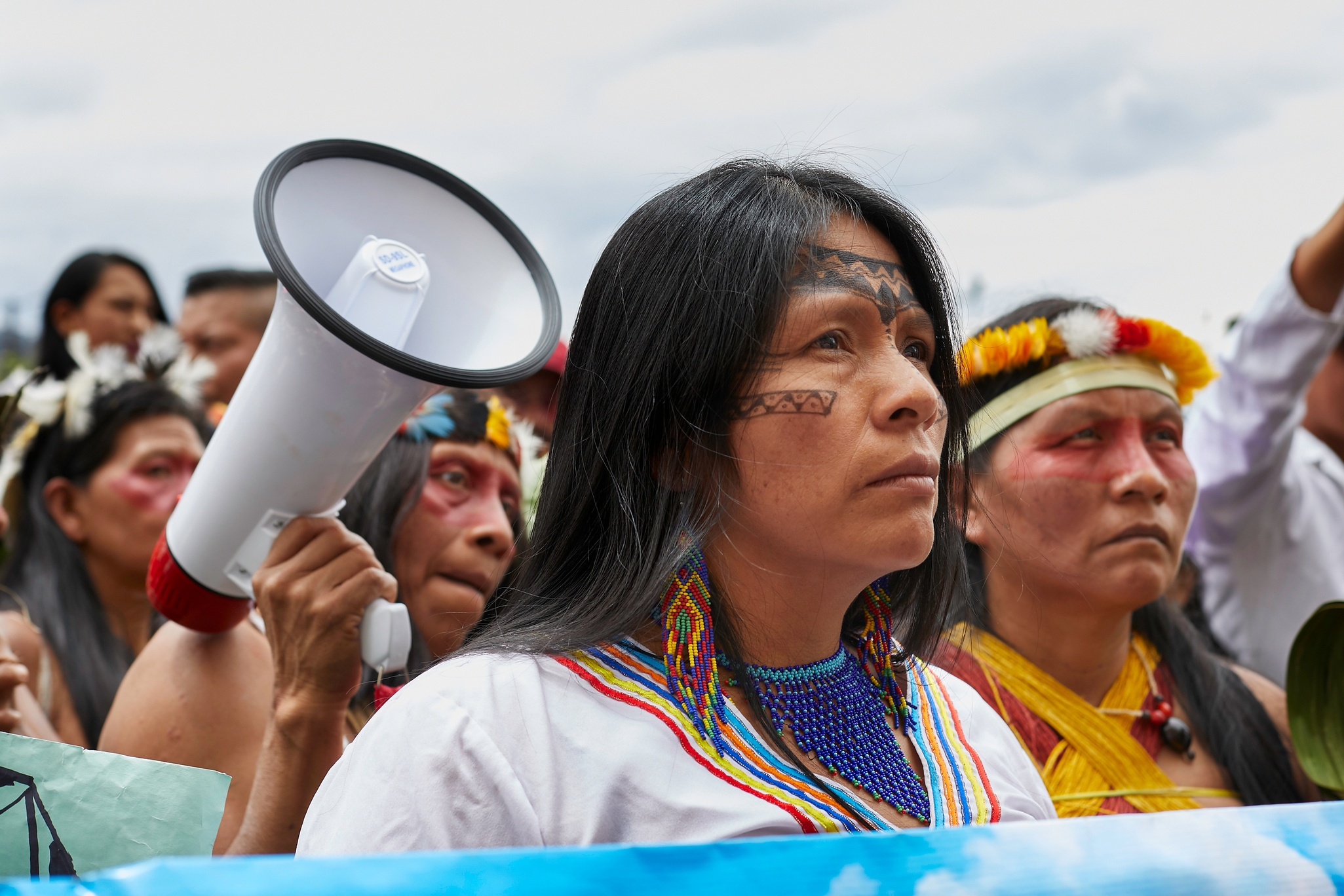
Amazonian women in Quito during a mobilization for International Women’s Day.
- Karen Toro / Climate Visuals Countdown
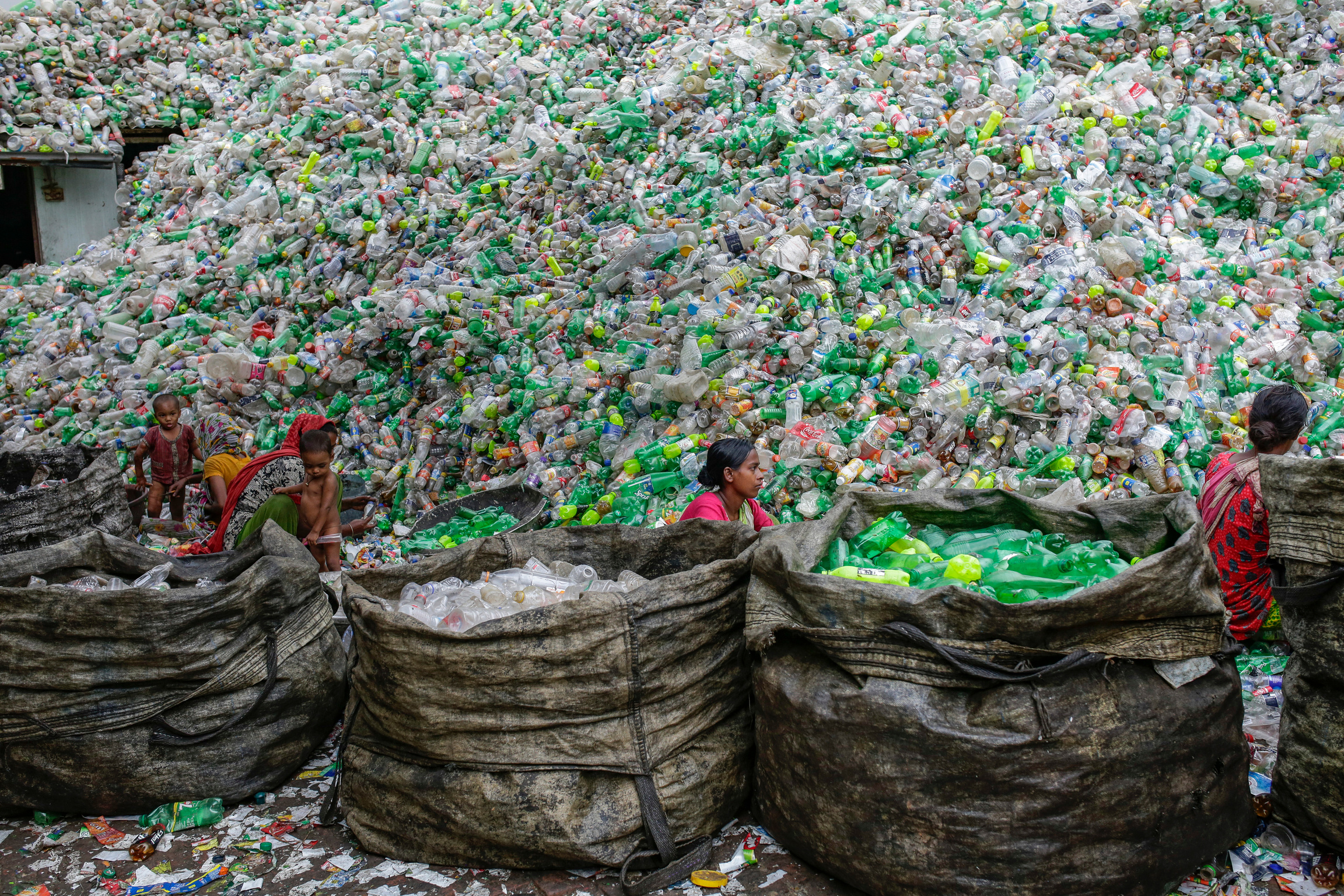
Female workers sort out plastic bottles for recycling in a factory in Dhaka.
- Abir Abdullah / Climate Visuals Countdown
Funding
IHRB accepts funding from organisations that demonstrate commitment to advancing respect for human rights and sustainable development, including in realising a just transition to the green economy.
In relation to carbon-intensive sectors, from 2021 onwards we have only accept funding from organisations committed to net-zero emissions at least by 2050. These criteria are reviewed on an annual basis.
IHRB relies on donations from a range of sources to implement our work.
We accept funding from governments, civil society (private foundations and individual donors), and business — our three core constituencies. Donations are objectively procured to ensure our independence and impartiality.
We undertake advisory work with governments and inter-governmental bodies on a contractual basis.
IHRB does not provide specific paid-for services or consulting to any businesses other than for human rights training. We do not undertake commissioned research or related activities on behalf of individual companies. Business donations must be used for core operations with no conditions attached or in support of IHRB’s leadership platforms.
Our Global Team
IHRB has registered charitable entities in the United Kingdom, Denmark, and the United States of America, but our work transcends local, national, and regional boundaries with partnerships and projects around
the world.
IHRB has a globally distributed team of staff and representatives currently based in: Colombia, Côte d’Ivoire, Denmark, France, Greece, India, Myanmar, Singapore, the United Kingdom, and the United States of America.
The “IHRB family” now includes five independent organisations (IHRB, CREER, MCRB, CHRB, and CSHR) which all cooperate to achieve IHRB’s vision and mission. They have different legal structures which have been designed to suit the purpose of their work, the safety of their staff (in the case of Myanmar particularly), and to optimise funding arrangements.
Governance
CHAIR & PATRONS
IHRB was founded in 2009 under the leadership of Mary Robinson, the former United Nations High Commissioner for Human Rights and former President of Ireland, who served as IHRB's inaugural Chair and since as its Patron.
IHRB’s subsequent Chair was the late John Ruggie, author of the United Nations Guiding Principles on Business and Human Rights, who subsequently served as a Patron to IHRB until his passing in 2021.
Chris Marsden also serves as an IHRB Patron, after two terms as chair of IHRB's Board of Trustees.
IHRB’s current Chair is Margot Wallström, the former Swedish Minister of Foreign Affairs. The Chair convenes IHRB’s International Advisory Council to review and reflect on IHRB’s strategic direction, programming, and the global context
in which it operates.
IHRB’s International Advisory Council is composed of influential thinkers across business, government, finance, trade unions, civil society, and academia. Membership is currently being renewed, with an update to be announced in 2023.
Margot Wallstrom
IHRB Chair
Former European Environment Commissioner and Vice-President of the European Commission; former Foreign Minister of Sweden
The late John Ruggie
IHRB Patron Emeritus
Author, UN Guiding Principles on Business & Human Rights
Mary Robinson
IHRB Patron
Chair, The Elders
Chris Marsden
IHRB Patron
Former Head of Community Affairs, BP
BOARD OF TRUSTEES
IHRB is registered under a number of jurisdictions world-wide but its central legal structure is as a charity with the Charity Commission for England and Wales. The IHRB charity is governed by a Board of Trustees who have independent control over, and legal responsibility for, IHRB’s finance, management, and administration. The CEO reports to the Board and is delegated the day-to-day management of the Charity.
The CEO manages IHRB by implementing the policy and strategy agreed, and within a budget approved, by the Board. The CEO, Deputy CEO, and COO advise the Trustees in relation to relevant policies, strategy, and budget, and consult the Trustees on key and strategic decisions.
Since 2009, the IHRB Board have guided the incubation and then separation of four affiliated organisations making up the wider IHRB “family”: the Myanmar Centre for Responsible Business (MCRB), Centro Regional de Empresas y Emprendimientos Responsables (CREER), the Corporate Human Rights Benchmark (CHRB), and the Centre for Sports and Human Rights (CSHR). See “Examples of IHRB in Action” above for more on each of these initiatives.
Ron Popper
Co-Chair of Trustees; CEO, Global Business Initiative on Human Rights
Ramanaie Kunanayagam
Former Global Head
for Social Performance and Human Rights, BG Group/Royal Dutch Shell
Deanna Kemp
Co-Chair of Trustees; Director, Centre for Social Responsibility
in Mining
Dan D’Ambrosio
Senior Associate, DLA Piper
Nicky Black
Former Director, International Council on Mining and Metals
Daud Khan
Partner,
Clifford Chance
Pia Rudolfsson Goyer
former Senior Advisor, Council on Ethics, Norwegian Government Pension Fund
Making human rights part of everyday business.
Cite as: IHRB 2023-2025 Strategy,
available at ihrb.org/about
Copyright: ©All rights reserved. IHRB permits
free reproduction of extracts from any of its
publications provided due acknowledgment
is given. Requests for permission to
reproduce or translate our publications
should be addressed to comms@ihrb.org
Report Design by:
Front cover image:
Worker in a village shop for solar products.
Kunal Gupta / Climate Visuals Countdown
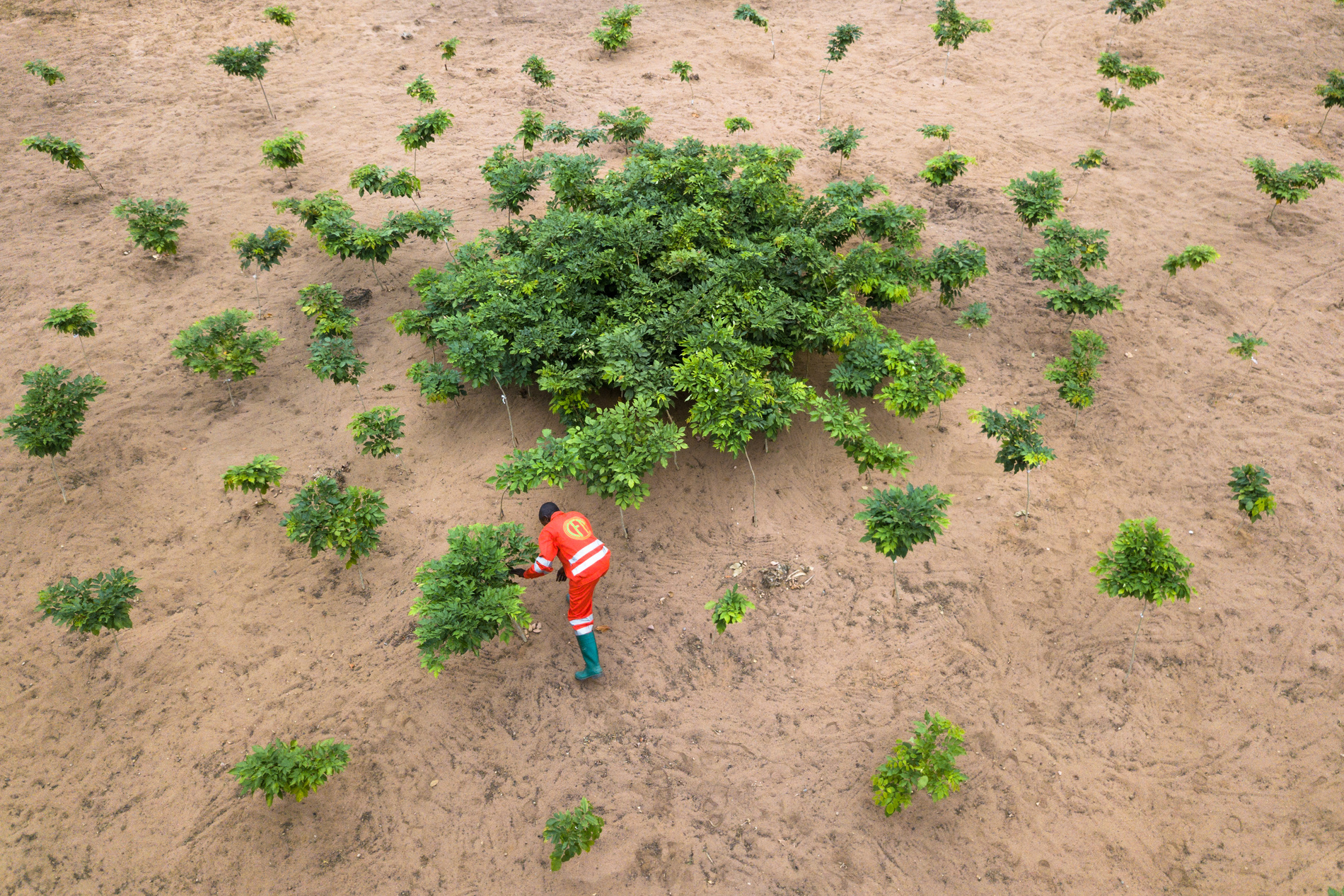
Democratic Republic of Congo Afrormosia growing scheme in Kisangani.
- Axel Fassio / CIFOR